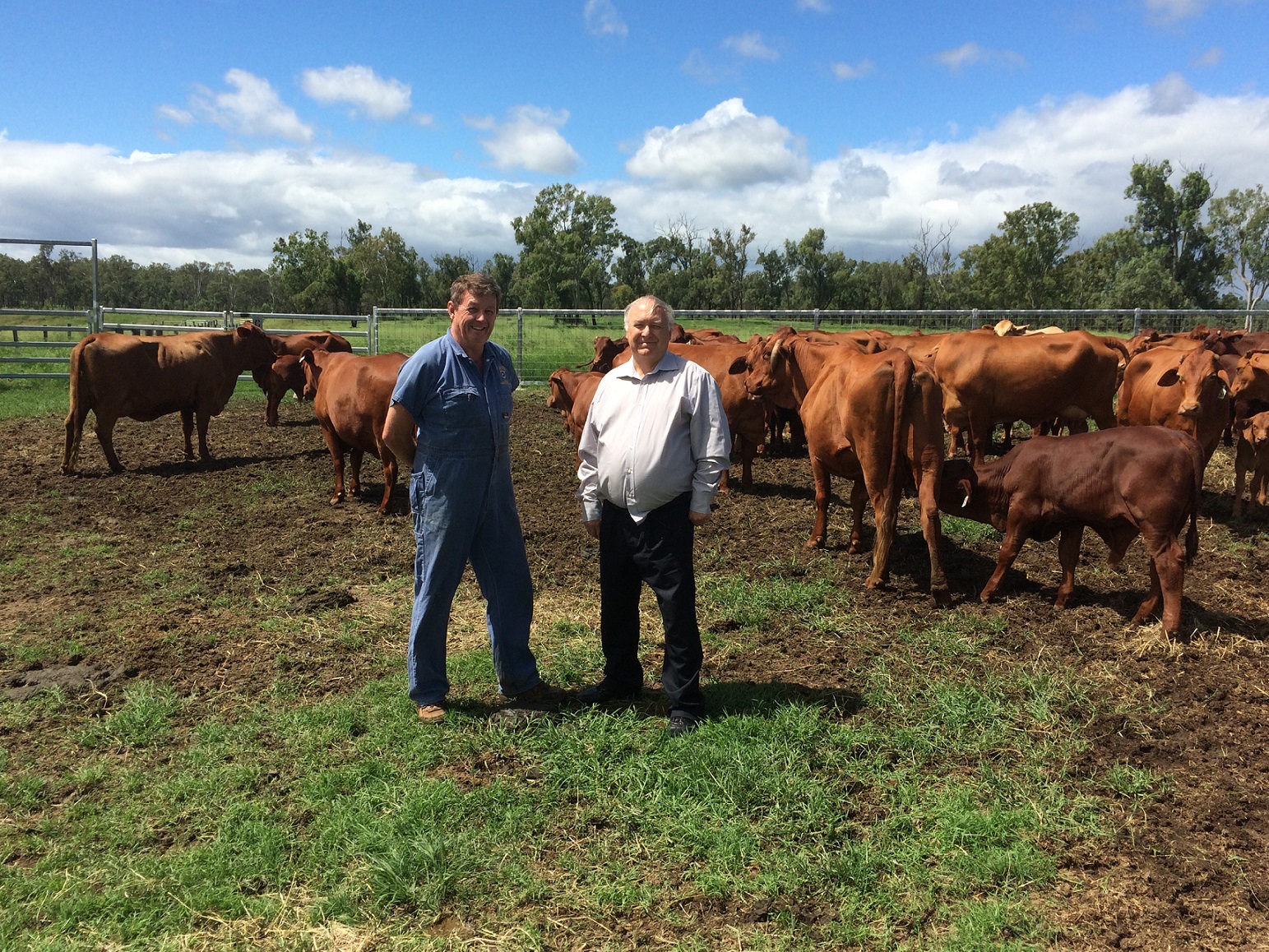 A three-year project at The University of Queensland is on track to produce an inexpensive, welfare- friendly, cattle contraceptive vaccine with capacity to boost productivity in northern breeding herds.
A three-year project at The University of Queensland is on track to produce an inexpensive, welfare- friendly, cattle contraceptive vaccine with capacity to boost productivity in northern breeding herds.
Leading the project are School of Veterinary Science honorary researcher Professor Michael Holland and academic Professor Michael McGowan, who will test several naturally-occurring and synthetic proteins in a slow-release 12 month vaccine for female cattle.
“Initial trials using a set of proteins derived from pig ovaries, called Porcine Zona Pellucide are promising,” said Professor Holland, who has worked for over twenty years on immune responses and vaccines -inducing temporary contraception in pest and domesticated livestock -
“In Brahman female cattle, we achieved 46 weeks of infertility in 89 per cent of animals treated.”
Professor Holland said this vaccine type saves time for beef producers by treating stock annually at the time of regular mustering, reducing cattle stress, cutting potential losses from surgical spaying and addressing animal welfare concerns around current sterilisation procedures.
It is one of 12 new projects to receive Meat &Livestock Australia (MLA) investment in 2017-18, instigated through MLA’s regional producer consultation process, which targets funding most relevant to them.
MLA Animal Health, Welfare and Biosecurity Program Manager Dr Jim Rothwell said a potential vaccine would eliminate the need for surgical sterilisation practices used in extensively-managed beef operations and allow cattle to achieve a saleable body weight and ultimately boost herd productivity.
“MLA and the wider red meat industry are investigating alternatives to replace spaying with an effective, easy to use and welfare-friendly vaccine – predicted to cost less than $20 per shot,” Dr Rothwell said.
Read the full article at Meat & Livestock Australia.



